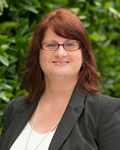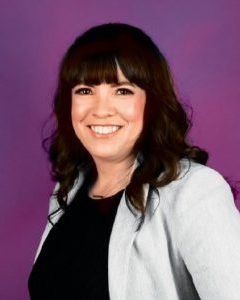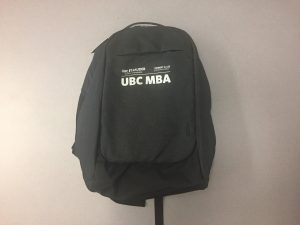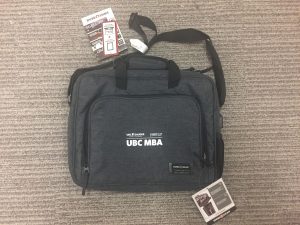 Are you ready for your UBC MBA program?
Are you ready for your UBC MBA program?
Go through the checklist to ensure that you are prepared to start your program
(NOTE: This list will be updated with new items periodically as you get closer to the start of the program. We’ll be sure to remind you to keep checking back!)
Opening Week Starts August 26, 2019!
On August 26, 2019 we will welcome all incoming Full-Time MBA Class of 2021 students to UBC Sauder through Opening Week. Opening Week will run for five full days from Monday, August 26 to Friday, August 30 inclusive and includes some evening programming.
Please note that attendance is mandatory for all students!
This week is designed to provide information about the program and services available, to build a strong foundation for class activities and teamwork, and to introduce you to fellow classmates, faculty and staff at the Robert H. Lee Graduate School.
Action Items:
In preparation for Opening Week, kindly complete the following items before August 26, 2019:
- Complete the Online Orientation Modules on Canvas (Deadline: August 18, 2019)
Note: You must complete each section chronologically and select “mark as done” in order to advance to the next section. - Print out and Complete the PAL Ropes Course Waiver form and the Optional Medical Form and bring them with you on Monday August 26, 2019.
- Complete the TCPS 2: Course on Research Ethics
- Complete the Southwest Airlines Case reading
- Complete the Surprising Power of Questions reading
Presentation Slides
Please see below slides from some of the session during Opening Week. Kindly visit MyMBA Career (Career Resources & Toolkits > BCC Presentations) for content from the Business Career Centre sessions.
Opening Week Speakers
 |
Cicely Blain Cicely is a consultant, facilitator, writer and artist based in Vancouver, BC. They grew up in London, England and graduated from the University of British Columbia with a major in Modern European Studies and a minor in Russian language. Cicely’s passion for activism started early and in their teenage years, was instrumental in winning an $8 million grant from the British government to build a community center for young people in poor urban environments. They realized the power of commitment to a cause, hard-work, and compassionate community building. Today Cicely continues to work towards an inclusive, equitable and accessible future through their organization, Cicely Blain Consulting. |
 |
Martina Valkovicova Martina is the Assistant Dean of Hari B. Varshney Business Career Centre who absolutely loves her job of helping students land a dream career and fulfill their potential. Originally from Slovakia, she set off to pursue global adventures at the age of 18. She has 20+ years of work experience in senior leadership positions in both private and public sectors across three continents. She holds an MA degree in Economics from Economics University in Bratislava and is also a proud UBC MBA alumna. She speaks four languages and is an avid reader, connector and volunteer passionate about social impact. |
 |
Justin Bull Justin is a faculty member at the Sauder School of Business at UBC. After completing a PhD on corporate sustainability practices, he spent five years in the private sector building sustainability programs with clients including Lyft, IKEA and Rolling Stone. He teaches extensively on Innovation, Indigenous Relations, and Strategy to graduate and executive audiences. |
 |
Jaclyn McPhadden Jaclyn earned her B.Sc. in Biology at UVic and her MBA at UBC. She spent several years leading teams in the Arctic and Antarctic, a transformational experience that’s inspired new approaches to balancing business and sustainability. Today, Jaclyn leads Canada’s 12th fastest growing company, disrupting the antiquated waste industry. She demonstrates herself as both a leader and business builder, which earned her Female Entrepreneur of the Year in 2018 and named in Vancouver’s Forty Under 40 in 2017. |
Southwest Airlines Case Reading: Note from Darren Dahl
Hi Everyone!
You are probably wondering why I’ve given you an case study from the 1990’s as the first reading in the program – good question! I’d like you to read through the case and think a little bit about Southwest airlines as a going concern in this time period. Also, please make sure you are familiar with the storyline of the case with respect to Shuttle-by-United. There is nothing specific to prepare for the class – just have a quick read through the case. There is no need to do additional research (i.e., go online, search articles, etc.), as you are best served by simply reading through the case.
I’ll be using this reading to help familiarize you with the case-study process.
Thanks and I look forward to meeting you!
Darren
Backpack vs. Messenger Bag
On the first day, you will have an option between a messenger bag and a backpack. Have a look at the options below and be ready to make a selection on August 26, 2019.
Backpack:

Messenger Bag:

| Task Description | When should I do this? |
| 1. If you haven’t already looked at the Academic Prep resources, you still have time. 89% of students last year completed some of the prep – invest in your peace of mind later by looking at this now! | Before September 3, 2019 |
| 2. Fill out the Personal Information Release. | Before August 2, 2019 |
| 3. Complete the TCPS 2: Course on Research Ethics and submit a pdf of your certificate in the Assignments section. | Before August 18, 2019 at 11:59 PM |
| 4. Complete the Orientation Modules. | Before August 18, 2019 at 11:59 PM |
|
5. RSVP for the Business Career Centre’s webinars: |
Ongoing |
| 6. Fill out your Career Intake Questionnaire. | Before September 29, 2019 |
|
Note: This will be shared with another FT MBA Class of 2021 student. |
Before August 18, 2019 |
| 8. Review your Period 1 Course Outlines & Course Sites on Canvas. When you log into Canvas you should see these listed on your Dashboard as of August 19, 2019. When you click into them you will see some course content. |
Before September 3, 2019 |
| 9. Review the Opening Week schedule and reading list (to be released shortly). | Before August 26, 2019 |
|
10. Obtain and activate your Graduate Student UBCcard online. This can be done online in advance or in-person during Opening Week (this is peak time though, and will be busy). NOTE: You need the card to enter the graduate classroom area, MBA lounge, and graduate breakout rooms. Visit Resources > Facilities > Activate your card for more information. |
Before August 26, 2019 |
| 11. Load your U-Pass BC onto an adult-class Compass Card after August 15th, 2019 See instructions on how to acquire your Compass Card and request your monthly pass. Please note you won’t be able to use your U-Pass until September 1, 2019. |
Before September 1, 2019 |
| 12. Create your UBC Sauder Computer Lab EAD (Enterprise Active Directory) account. You will need this account to access the UBC student/alumni e-mail service and to access UBC Sauder’s computer labs and network services. | At your earliest convenience |
|
13. Update your Vancouver-based contact information on the Student Service Centre (Personal Info > Contact Summary) Note: this is also where you would update your preferred name. For more information, visit this link. |
Before August 26, 2019 |
| 14. Check out the UBC MBA Society website. You will be given more information about the MBA Society in September, and elections will be held to elect representatives from your class in October. | Ongoing |
| 15. Attend mandatory MBA Opening Week: August 26 – August 30, 2019. | August 26 – August 30, 2019 |
| Task Description | When should I do this? |
| 1. Mark your calendar! Your program begins on Monday, August 26th, 2019 with Opening Week. Attendance is mandatory for all students. This orientation programming will run five full days and into some evenings. | At your earliest convenience |
| 2. Complete the TCPS 2: Course on Research Ethics and submit a pdf of your certificate in the Assignments section. | Before August 18, 2019 at 11:59 PM |
| 3. Complete the Orientation Modules. | Before August 18, 2019 at 11:59 PM |
| 4. Fill out the Personal Information Release. | Before August 2, 2019 |
|
5. RSVP for the Business Career Centre’s webinars: |
Ongoing |
| 6. Schedule a welcome call with the FT MBA Student Experience Team! | Ongoing |
| 7. If you would like to come visit us before the program starts, sign up for a coffee chat & campus tour – we’re a friendly bunch! | Ongoing |
| 8. Explore all sections of this program site, and bookmark it on your computer – you will be notified as more sections of the site are made available over the coming months. | Ongoing |
|
9. If you are moving to Vancouver, please plan to arrive by August 1, 2019 at the latest in order to give yourself enough time to arrange your housing, and set up personal banking accounts, cell phone and other necessary logistics prior to the program start. See our Living in Vancouver page for handy hints. |
August 2019 |
|
10. International students – apply for a study permit! We strongly suggest that you apply for a Co-op Work Permit at the same time that you apply for your study permit. (The Co-op work permit is required for eligibility to work full-time during the BA 512 – BSI: Experiential Learning course which you will complete from May – Aug 2020). Please contact UBC International Student Advising for specialized support in putting together your application. Note: It is important to apply for this as soon as you receive your official admission letter as this process can often take months to complete! |
As soon as you receive your UBC MBA Offer Letter |
|
11. Join the UBC Sauder FT MBA Class of 2021 Facebook Group. Even if you are not a regular Facebook user, it would be worthwhile to create a basic account in order to be able to connect with your classmates prior to the program start. |
At your earliest convenience |
| 12. Sign up to be matched with a current student in the MBA Society Buddy Program. | At your earliest convenience |
|
13. Begin regularly reading the Globe and Mail Business Section to expand your general business knowledge prior to the program start. Pro tip: You can access the Globe and Mail articles via the UBC Library by visiting this link and going through the first database (Canadian Newsstream). When you are off campus, you will need to login to the library website using your campus wide login information. |
Ongoing |
| 14. If you are an international or out-of-province student, sign up for the BC Medical Services Plan immediately after you arrive in BC to ensure you will have healthcare for the duration of your studies. | At your earliest convenience |
|
15. Ensure that you will have a laptop computer for the duration of your program. |
At your earliest convenience |
| 16. Review the Academic Prep resources and complete the studies in any areas where you need to brush up your knowledge/skills. | Ongoing |
| 17. Have a look over your Program Schedule (September 2019 – April 2020). | Ongoing |
The fast pace of the UBC MBA program necessitates that all students have a foundational proficiency in Quantitative Methods and Excel and familiarity with Statistics, Economics and Finance. To aid in ensuring that you have adequate knowledge in the above subjects we have liaised with your program instructors to compile a list of online academic prep tutorials for you to review as you prepare for your program.
Each of you comes to the program with a different academic background and different work experiences, so your familiarity with the academic prep tutorials will also vary. It may be that some of the resources on this list are very familiar to you, and you can just quickly review to make sure you are up to speed, or it may be that you have never covered some of them and you will need to learn them in depth.
When your classes begin in September, you will need to be familiar with all of the material listed on the academic prep resource list, as classes move along very quickly and you will need to be able to keep up with your classmates.
Printable: Download and print the full list of tutorials, if you would like to keep track of your progress.
Instructions
Where to begin: Please review each section and aim to complete those areas with which you are not currently comfortable. Most tutorials include quizzes and practice tests, so completing these is a good way to quickly review whether you are comfortable with the content.
Concepts that past students have indicated are critical have been highlighted in red. If you have only a small amount of time to devote to the academic prep, please focus on the highlighted sections first.
If you would like to track your learning progress you can sign up for a user account with Khan Academy, but this is not required.
Completion times: We have estimated the times to complete each section based on the length of videos and allocating time for the practice questions. It may take you a longer or shorter time than we have indicated, and after a few sections you will begin to get an idea of your speed compared to our estimates.
Disclaimer: All resources below are from Khan Academy, unless otherwise indicated.
These tutorials have not been vetted in-depth. They have been selected based on the concepts included and tutorial descriptions. Students are encouraged to explore the content and cover concepts with which they are unfamiliar.
The aim is to ensure that you have foundational proficiency in these topics, but be aware that not all concepts taught will apply directly to your course work.
If you have feedback about these academic prep materials, please send it to askmba@sauder.ubc.ca.
Printable: Download and print the full list of tutorials, if you would like to keep track of your progress.
Academic Writing
These resources are recommended by the staff at the UBC Sauder Canaccord Learning Commons
Sharpening Your Writing Skills by Duncan Kent
Sharpening Your Writing Skills is an excellent workbook on business writing with exercises and answers, online or as a downloadable PDF.
Purdue Online Writing Lab (OWL)
Well-known resource especially for APA research citations as well as a wide range of grammar and writing topics.
David Appleyard English
A comprehensive and easy-to-use website covering numerous grammar topics.
Quantitative Methods
Arithmetic
2 hours approximate study time. Relevant for Statistics, Operations, Finance, Economics.
Reminder: each of you comes to the program with a different background - please review each section and complete those areas with which you are not currently comfortable.
The Basic Order of Operations (PEMDAS)
- Order of Operations(20 mins)
Fractions (approx. 1 hour 15 mins total)
- Introduction to Fractions(15 mins)
- Equivalent Fractions(40 mins)
- Simplifying Tricky Fractions(20 mins)
Averages
- Averages(9 mins)
Linear Equations & Functions – relevant for Economics
- Modeling with linear equations(10 mins)
Algebra
19 hours approximate study time. Relevant for Statistics, Operations, Finance, Economics.
Reminder: each of you comes to the program with a different background - please review each section and complete those areas with which you are not currently comfortable.
Functions (approx. 1 hour 20 mins total) (Relevant for Economics)
- Maximum and minimum points(15 mins)
- Average rate of change(30 mins)
- Average rate of change word problems(35 mins)
Logarithms (approx. 45 mins total) (Relevant for Economics & Finance)
Introduction to algebra (approx. 3 hours 20 mins total) (Relevant for Statistics/Operations)
- Introduction to variables(25 mins)
- Substitution and evaluating expressions(15 mins)
- Evaluating expressions word problems(15 mins)
- Writing algebraic expressions introduction(23 mins)
- Dependent & independent variables(10 mins)
- Combining like terms(32 mins)
- Introduction to equivalent algebraic expressions(7 mins)
- Interpreting linear expressions(10 minss)
- Division by zero(15 mins)
- Practice test(25 mins)
One-variable linear equations (approx. 5 hours total) (Relevant for Statistics/Operations)
- Algebraic equations basics(23 mins)
- Why we do the same thing to both sides of an equation(15 mins)
- One-step addition & subtraction equations(25 mins)
- One-step multiplication & division equations(40 mins)
- Two-steps equations intro(20 mins)
- Two-step equation word problems(20 mins)
- Linear equations with variables on both sides(35 mins)
- Linear equations with parentheses(20 mins)
- Analyzing the number of solutions to linear equations(18 mins)
- Linear equations word problems(25 mins)
- Linear equations with unknown coefficients(10 mins)
- Practice test(25 mins)
One-variable linear inequalities (approx. 1 hour 10 mins total) (Relevant for Statistics/Operations) (only sections indicated below)
- Introduction to inequalities with variables(40 mins)
- One-step inequalities(20 mins)
- Quiz(10 mins)
Two-variable linear equations (approx. 6 hours 50 mins) (Relevant for Statistics/Operations/Economics)
- Two-variable linear equations intro(30 mins)
- x-intercepts and y-intercepts(40 mins)
- Slope(50 mins)
- Horizontal & vertical lines(20 mins)
- Intro to slope-intercept form(30 mins)
- Graphing slope-intercept equations(25 mins)
- Writing slope-intercept equations(50 mins)
- Point-slope form(30 mins)
- Standard form(35 mins)
- Summary: Forms of two-variable linear equations(35 mins)
- Practice test(30 mins)
Excel
Excel
1 hour to 4 hours approximate study time, depending on previous skill level. Relevant for Statistics, Operations, Finance.
Reminder: each of you comes to the program with a different background - please review each section and complete those areas with which you are not currently comfortable.
You will use Excel frequently in various courses during your program – make sure you have the basic skills in advance.
- Excel training(delivered by Microsoft)
- Advanced Formulas & Functions (delivered by In Learning)
- Intro (1 min)
- Section 1: Formula & Function Tips & Shortcuts (50 mins)
- Section 2: Formula & Function Tools (45 mins)
- Section 3: IF and Related Functions (25 mins)
- Section 4: Lookup and Reference Functions (only VLOOKUP) (25 mins)
- Section 6: Statistical Functions (only MEDIAN, MODE, COUNT) (15 mins)
- Section 7: Math Functions (only ROUND, ROUNDUP, ROUNDDOWN, RAND, RANDBETWEEN) (10 mins)
- Section 11: Text Functions (only CONCATENATE)
Plagiarism & Citation
Plagiarism & Citation
1 hour approximate study time. Critical skills for all of your courses - make sure you know how to cite your work, and understand what your responsibilities are with regards to academic integrity.
- Avoiding Plagiarism (UBC Commons resource)
- How to cite (UBC Library resource)
- Getting started with APA Citation style (UBC Library resource)
Finance & Capital Markets
Finance & Capital Markets
1 hour 45 mins approximate study time. Relevant for Finance.
Reminder: each of you comes to the program with a different background - please review each section and complete those areas with which you are not currently comfortable.
Ratio, Proportion and Percent
- Introduction to Ratios (30 mins)
- Solving Percent Problems (10 mins)
Interest & Debt
- Compound interest basics (17 mins)
- Present value (45 mins)
Statistics
Statistics
11 hours 40 mins approximate study time. Relevant for Statistics/Operations.
Reminder: each of you comes to the program with a different background - please review each section and complete those areas with which you are not currently comfortable.
Displaying & Describing Data (approx. 6 hours 50 mins total) (only sections indicated below)
- About (1 min)
- Statistics overview (20 mins)
- Categorical data displays (20 mins)
- Two-way tables for categorical data (35 mins)
- Histograms (15 mins)
- Line graphs – 6 mins
- Mean and median: The basics (45 mins)
- Range, Interquartile range (IQR) - just Range & IQR (no MAD) (15 mins)
- Range and mid-range
- Interquartile range (IQR)
- Practice
- Comparing range and interquartile range (IQR)
- Interquartile range review
- Population variance and standard deviation (1 hour 15 mins)
- Sample variance and standard deviation (1 hour 45 mins)
- Practice test (30 mins)
- Modelling Distributions of Data (approx. 2 hours 40 mins total)
- About – 1 min
- Describing location in a distribution (28 mins)
- Normal distributions (2 hours 10 mins)
- Probability (approx. 1 hour 25 mins total) (only sections below)
- About – 1 min
- Basic theoretical probability – 50 mins
- Probability using sample spaces – 20 mins
- Quiz #1 – 15 mins
- Probability Distributions
- Sample Means (approx. 35 mins total) (only sections below)
Economics
Economics
10 hours approximate study time. Relevant for Economics.
We will take for granted knowledge of basic algebraic manipulations, including simplifying single equations for the value of a variable in terms of other parameters and solving two-equation, two-variable problems. We will also assume students are familiar with moving between algebraic and graphical representations of functions of two variables (most importantly, straight lines).
Differential calculus will be used in some optimization problems, and students should be familiar with techniques of differentiation for polynomials and exponential functions, in particular. Parts of our course deal with situations of uncertainty, and for this reason it is helpful for students to be familiar with the basics of probability theory, and the concepts of expected value and variance, in particular.
Economics-specific concepts to know include the following: opportunity cost; marginal cost and marginal revenue; elasticity; demand curve; (industry) supply curve; Nash equilibrium
Introduction to Economics
- Intro to Economics: Crash Course Econ #1 (13 mins) (delivered by CrashCourse on YouTube).
Average costs (ATC, MC) and marginal revenue (MR)
- Marginal cost and average total cost (7 mins)
- Marginal revenue and marginal cost (6 mins)
- Marginal revenue below average total cost (6 mins)
Derivative introduction (approx. 3 hours 45 mins total)
- Introduction to differential calculus(35 mins)
- Derivative as slope of tangent line(15 mins)
- Derivative as instantaneous rate of change(20 mins)
- Secant lines(45 mins)
- Derivative as a limit(25 mins)
- Formal definition of derivative(20 mins)
- Differentiability(27 mins)
- Derivative as a function(25 mins)
- Review: Derivative basics(15 mins)
Basic differentiation (approx. 2 hours 15 mins total)
- Basic differentiation rules(40 mins)
- Power rule (23 mins)
- Polynomial functions differentiation (45 mins)
- Review: Basic differentiation(30 mins)
Product, quotient & chain rules (approx. 1 hour 35 mins total)
- Product rule(45 mins)
- Chain rule(50 mins)
Derivative applications (approx. 1 hour 40 mins total) (only section below)
- Optimization(1 hr 40 mins)
Game theory and Nash Equilibrium (approx. 17 mins total)
- Prisoner’s dilemma and the Nash equilibrium (10 mins)
- More on Nash equilibrium (7 mins)